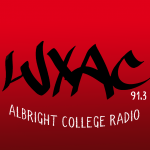Freedom: America’s Crown Jewel! What is it good for? I had hopes that this global pandemic would heal divisions in our country as we worked together against our common enemy—a deadly virus. Instead, sadly, we seem more divided than ever over demands for “freedom” from protocols and restrictions set in place presumably to keep us all safe from the disease. Something’s wrong. I think we need to adjust our focus on “freedom.”
This essay was originally written and submitted to Newsweek’s “My Turn” in 1994. (Resubmitted in 2001). The author stumbled across it recently, and shared it with BCTV as it seems as relevant now, as it ever has.
It’s Time to Adjust the Focus on Freedom—by Jane Stahl, Boyertown, PA
I teach high school English. Today, while I was introducing the Revolutionary Period in my American Literature course—as I’ve done for years—I read the following passage from our textbook* and understood it differently than I ever had before. The text reads:
Writers of this [Revolutionary] period were all conscious of belonging to what is called the Age of Reason…. Reason thrived on freedom—freedom of speech, freedom from arbitrary rulers, freedom to experiment, freedom especially to question existing laws and institutions. By the free use of reason, human beings could progress: social evils could be corrected, superstition and ignorance ended, and the general quality of existence improved.
I read the beginning of the last sentence to my class again: “By the free use of reason, human beings could progress….” And then I asked them to think about his view of “freedom.”
This vision of freedom—as a tool to be used for humanity’s progress—is the nature of the freedom our forefathers had in mind. But this vision of freedom is not the one rampant in our culture today.
Let me explain.
We Americans are enamored with our rights to freedom. Yet, more and more lately it seems our freedoms are killing more and more of us every day—physically, morally, spiritually. Perhaps some of us have misunderstood the focus of the freedom our Founding Fathers had in mind.
The freedom of Franklin and Jefferson is not the freedom of speech that produces film after film or CD after CD filled with violence, hate, and degenerate behavior; it’s not the freedom to experiment with drugs; it’s not the freedom to break laws for our own convenience of unbridled wealth.
My teenagers were amused when I had them imagine Franklin and Jefferson fighting for the freedoms they themselves often fight for: to party until dawn on school nights (or any other nights!) or hang out at the local mall with no purpose. Yet, their notion that freedom is for fun’s sake is part of the misunderstanding: I’m not sure that’s the freedom our Founding Fathers had in mind.
What I believe they did have in mind is the freedom that responsible parents give to their children so that these children can learn, progress, grow. This freedom gives them space to travel their own journeys, using their own reason toward ending social evil, ignorance, and improving the quality of life for themselves and the rest of our society.
I suggested to my sixteen and seventeen-year-old students that perhaps the modern interpretation of freedom that we’ve come to love…expect…even demand is inappropriate at best and destructive to individuals and society at worst. And I asked them today to re-look at their notion of freedom.
I also shared with them an advertisement sponsored by the Jewish Theological Seminary of America which appeared in magazines like Newsweek several years ago. The ad was written as a letter to The People and signed by God. God writes:
Dear People,
I offer you a gift. I hope you will accept it. Linked with the gift is a burden.
I hope you can handle it.
My gift is freedom.
It means that each of you can do just about anything—say anything, use, build, or destroy anything within your grasp.
But wait—I’m giving this gift to all of you, every women, man, and child, every race and every nation.
Ah, you see the difficulty: if all of you are to be free, each of you will have to put limits on your own actions—otherwise you’ll wind up with misery, crime, chaos, and tyranny. Everything you make will be broken; every place you go will be dangerous. Only a few will be “free,” and they’ll really be enslaved to their greed and their fear of everyone else.
That’s the burden linked with the gift: self-restraint.
I’m asking a lot of you. You have to make freedom work.
If unbridled greed is accepted as success, it isn’t working.
If the earth is poisoned and its resources depleted, it isn’t working.
If people are treated as sex objects, it isn’t working.
If racist and ethnic hatreds are countenanced, it isn’t working.
If people turn to drugs and alcohol, it isn’t working.
If people cheat “because everyone cheats,” it isn’t working.
And if it isn’t working, the responsibility to fix it belongs to everyone one of you.
Unless all of you use your freedom with restraint, everyone’s liberty will weaken and die. No one can be free alone.
This isn’t going to be easy. But it will help if you remember that the world doesn’t revolve around you. It will help if you remember who gave you this gift.
With love,
God
And as I read the letter to them, I myself saw, as never before, what our misunderstanding—and, thus, our mis-use—of freedom has created in our world: greed, corruption, sexual violence, racial and ethnic strife, pollution. These results—stemming from our misguided interpretations of our cherished freedoms—are everywhere. For example, never before has the violence in our society been so ubiquitous; never before have we seen so many young people involved in violence and crime. Never before have schools been as unsafe as they are today in many areas.
The good news is that we’re finally paying attention…like never before.
And so, it seemed, were my students. I must tell you…the classroom was silent as I finished reading “God’s” letter. In this silence I imagined them understanding “freedom” for the first time, in a new way—freedom which demands personal growth, responsibility, caring for others and limits on their own desires.
I know, they may have quieted only because I’d been talking steadily for longer than five minutes. (Sleep comes easily under those conditions to the young and the restless.)
But perhaps they were listening. Perhaps in those moments together we had understood something important—something that our entire country must remember: freedom for freedom’s sake is not the point at all. Freedom for the sake of human progress—the amelioration of social evils, the elimination of superstition and ignorance, the improvement of the quality of life—these are the purposes for which our freedoms must be used and guarded and guaranteed. And nothing less.
Our children need us to clarify freedom’s focus; it’s grown cloudy over the past 200 years. I think they are ready to listen. We know their future depends on it. Let’s all teach them together. As an old African saying goes, “It takes the whole village to raise a child.”
*Hodgins, Francis and Kenneth Silverman. Adventures in American Literature: Heritage Edition. New York: Harcourt Brace Jovanovich, 1980.
![It’s Time [Again] to Adjust the Focus on Freedom](https://www.bctv.org/wp-content/uploads/2018/07/opinion.jpg)



